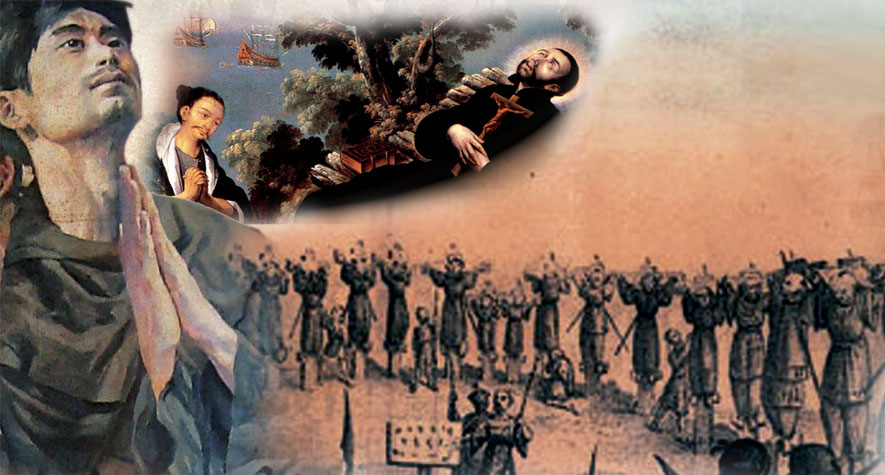
In 1549 the Jesuit missionary, Francis Xavier, founded the church in Japan. The Jesuits were soon followed by the Franciscans. For 40 years Christianity spread and flourished. Then in 1588 the Japanese ruler Hideyoshi, fearful of changes introduced by Christianity and apprehensive of western intentions of conquest, began a severe persecution aimed at wiping out the Christian faith completely. The persecution included whole families of the principal victims in accordance with Japanese custom. This persecution lasted nearly 50 years, and thousands laid down their lives.
The first of these martyrs were 26 in number. Of these, one was Paul Miki a Japanese Jesuit priest and outstanding preacher, 2 were Jesuit lay-brothers, and 6 were Franciscans (4 Spanish, one from Mexico City, one from Bombay). The other 17 were all laity (1 Korean and 16 Japanese). Among the laity were catechists, interpreters, a physician and 3 boys in their teens.
Their martyrdoms took place near Nagasaki in 1597. They were tied or chained to crosses on the ground, had an iron collar put round their necks, and then their crosses were raised upright in a single row. Each victim had a separate executioner, who stood in front of the cross with a spear in his hand. It is said that while awaiting execution the martyrs preached or sang. Then at a given signal the spears were plunged into the martyrs. These 26 were canonised in 1862 as the first martyrs of the Far East. Between 1617 and 1632 many more Japanese Christians were put to death because of their faith.
The teaching of Christianity in Japan was forbidden until the 1850s, and all foreigners were excluded from the country. In 1859 French missionaries were permitted to enter and were amazed to find that, 250 years later, there were small bands of Christians in communities throughout Japan, who, without priests or teachers, had kept the faith handed down by their forebears and baptized their children.
 Welcome
Welcome Calendar
Calendar Today's Word
Today's Word Lauds
Lauds Terce
Terce Sext
Sext None
None Vespers
Vespers Compline
Compline Matins
Matins